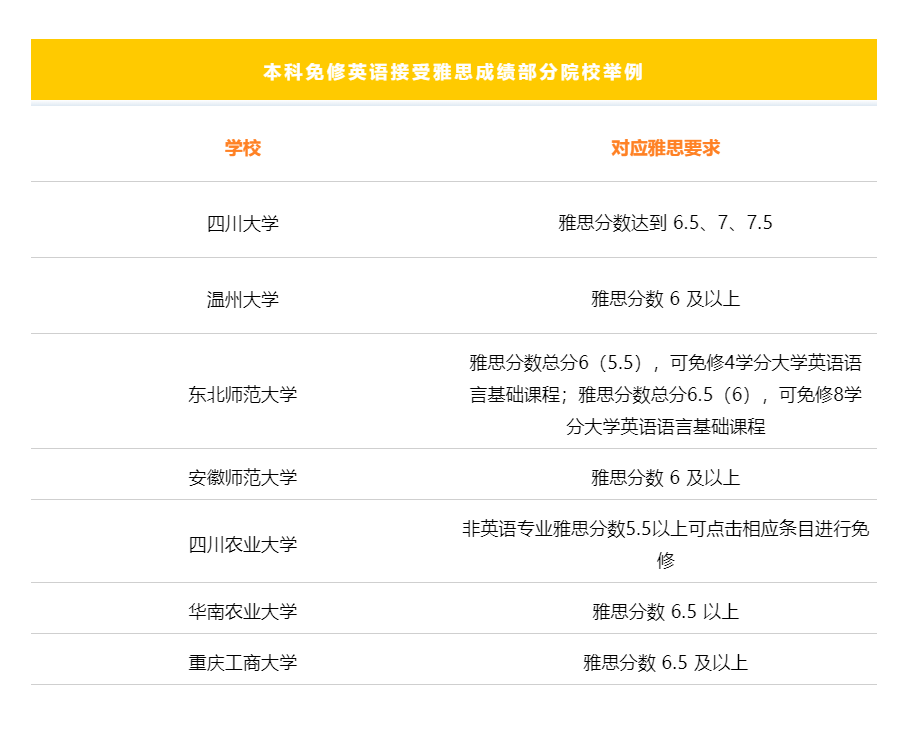为了让大家更好的准备商务英语BEC考试,小编给大家整理一下BEC商务英语初级高分阅读技巧,下面小编就和大家分享,来欣赏一下吧。
一般BEC阅读中涉及词汇量比较大,但考生具备6000左右即可应考。单词贫乏的考生,一定要及时补充词汇,打下扎实的基础。在应试时很容易遗忘或混淆单词的意义,为了避免类似情况发生,一定要加强单词意义的理解。对此,考生可以制作单词卡片,正反面各写英文和中文解释。制订计划每天背一定量的生词,循环背诵并不断补充。当然,最有效的是阅读文章时记忆单词。
在句子理解方面,考生最容易犯的错误就是根据自己已有经验片面理解。BEC阅读中有的题目考的是对于文章中某一句子的理解,要参考上下文客观地看问题。考生应对一些复合句,尤其是双重否定句、比较句、指代句等有较深了解。特别在遇到复杂句时,应静心思考,从把握句子主干一一主谓结构着手来分析解剖句子结构。
三、阅读扫描全文,做出标记
BEC阅读追求速度(speed)与准确度(accuracy)的完美结合。快而不准或准而太慢都会影响考分。考生在勤奋练习的时候掌握一些阅读技巧将达到事半功倍的效果。快速阅读最关键的是在扫描全文的时候把握每段的主旨,并做出标记,在看完全文后对文章的结构主题有大致的了解。此外,考生以单词为单位看文章,遇生词就停顿等坏习惯都要极力避免。
总之,考生平时多看、多读、多听、多说、多写,多接触英文(much exposure to English)再运用一些阅读技巧,拿下BEC阅读并非一件难事。
亚洲
China Chinese Beijing
Japan Japanese Tokyo (Osaka, Yokohama, Kobe)
South Korea South Korean Seoul
Thailand Thai Bangkok
Indonesia Indonesian Jakarta
Vietnam Vietnamese Hanoi
Malaysia Malaysian Kuala Lumpur
Pakistan Pakistani Islamabad
Philippines Philippine Manila
Singapore
Hong Kong
Macao
India Indian New Delhi(Bombay)
欧洲
Italy Italian Rome
Sweden Swedish Stockholm
Switzerland Swiss Geneva
Norway Norwegian Oslo
Finland Finnish Helsinki
Denmark Danish Copenhagen
Germany German Berlin (Bonn/ Hamburg)
France French Paris
Britain (the UK) British London
Spain Spanish Madrid
Russia Russian Moscow
Austria Austrian Vienna
Greece Greek Athens
Poland Polish Warsaw
美洲
The USA ( North American) Washington(Chicago/New York/San Francisco
Seattle/Hawaii / Los Angeles/Detroit/Atlanta
Canada Canadian Ottawa (Montreal/Vancouver/Toronto)
Mexico Mexican Mexico City
Brazil Brazilian Brasilia ( Rio De Janeiro or Rio/Sao Paulo)
Argentina Argentino Buenos Aires
Chile Santiago
Peru Lima
大洋洲
Australia Australian Canberra (Sydney/Melbourne/Perth)
New Zealand New Zealander Wellington
Egypt Egyptian Cairo
补充:
Middle East: Iraq, Kuwait, Saudi Arabia, Syria, Lebanon
African States: Kenya, Nigeria(尼日利亚), South Africa
Eastern Europe: Hungary, Czech
Cardinal Ordinal
1 one 1st first
2 two 2nd second
3 three 3rd third
4 four 4th fourth
5 five 5th fifth
6 six 6th sixth
7 seven 7th seventh
8 eight 8th eighth
9 nine 9th ninth
10 ten 10th tenth
11 eleven 11th eleventh
12 twelve 12th twelfth
13.thirteen 13th thirteenth
14 fourteen 14th fourteenth
15 fifteen 15th fifteenth
16 sixteen 16th sixteenth
17 seventeen 17th seventeenth
18 eighteen 18th eighteenth
19 nineteen 19th nineteenth
20 twenty 20th twentieth
21 twenty-one 21st twenty-first
22 twenty-two 22nd twenty-second
30 thirty 30th thirtieth
40 forty 40th fortieth
50 fifty 50th fiftieth
60sixty 60th sixtieth
70seventy 70th seventieth
80eighty 80th eightieth
90ninety 90th ninetieth
100 a hundred 100th hundredth
0 nought 0 is pronounced nought before a point and oh after a point in
British English. It is pronounced zero in US English.
100 a hundred
1,000 a thousand
1,000,000 a million
1,000,000,000 a billion (US English)
1,000,000,000,000 a billion (British English)
完形填空是在一篇语意完整的文章中有目的地挖出一些空白,造成信息链的中断,让考生在全面理解文章的基础上,综合运用所学知识对每个小题的备选选项做出尽可能合理的分析、判断,从而选出最佳答案,使重新构建的文章主旨鲜明、语意通顺、逻辑严密。同学们在做完形填空时,可参考以下步骤:
1. 通览全文,领会主旨
做完形填空时,同学们应先通览全文,整体把握文章,勾画出与文章大意关联的关键词句。考生在开始阅读完形填空的文章时,会感觉模糊,不清楚文章想要表达什么,此时千万不可放弃;继续读,慢慢地就能领会文意。一般情况下,完形填空的首句不设空,这就为考生理解整篇文章提供了一个“窗口”。
抓住文章的主旨大意后,考生可以围绕主旨大意去重新阅读、预测、推理。此时,一些干扰性强、错误的选项自然而然也就被排除在外了。
2.细读全文,透析文意
做完形填空的过程中,同学们应学会边读边在大脑中储存有效信息。完形填空主要考查学生对语境的理解,所以要有全局观念,进行连贯性思维。通常有些设空的答案在上文或下文会有提示。如果能注意到这一点,就不难选出正确答案。
3.结合背景,全面验证
在做完一篇完形填空后,最好把所选答案放到空白处验证一下,看看是否和文章的主旨大意一致、上下文是否连贯、语意是否通顺、是否能自然地融入整个语篇。如果所选答案游离于文章主旨之外或与整篇文章的逻辑相矛盾,那么这个答案就需要重新修正。
另外,完形填空所选文章大多都是独立的语篇,其中渗透着一些和文化地理、历史民俗及风土人情相关的背景知识。如果考生能积极地运用自己储备的相关知识,就会大大简化分析和判断的过程,能较容易地融入文章,并和作者产生一定的共鸣,题目做起来就更加得心应手了。
【2017年全国I卷真题再现】
Whilehigh school does not generally encourage students to explore new aspects oflife, college sets the stage for that exploration. I myself went through this 41 process and found something that has changedmy 42 at college for the better: I discovered ASL-AmericanSign Language (美式手语).
Inever felt an urge to 43 any sign language before. My entire family ishearing, and so are all my friends. The 44 languages were enough in all my interactions(交往).Little did I know that I would discover my 45 for ASL.
The 46 began during my first week at college. I watched as the ASL Club 47 their translation of a song. Both the hand movements and the very 48 of communicating without speaking 49 me. What I saw was completely unlike anything I had experienced in the 50 .This newness just left me 51 more.
After that, feeling the need to 52 further, I decided to drop in on one of ASL club’s meetings. I only learned how to 53 the alphabet that day. Yet instead of being discouraged by my 54 progress, I was excited. I then made it apoint to 55 those meetings and learn all I could.
The following term, I 56 an ASL class. The professor was deaf and any talking was 57 .I soon realized that the silence was not unpleasant. 58 , if there had been any talking, it would have 59 us to learn less. Now, I appreciate the silence and the 60 way of communication it opens.
41. A. searching
B. planning
C. natural
D. formal
42. A. progress
B. experience
C. major
D. opinion
43. A. choose
B. read
C. learn
D. create
44. A. official
B. foreign
C. body
D. spoken
45. A. love
B. concern
C. goal
D. request
46. A. meeting
B. trip
C. story
D. task
47. A. recorded
B. performed
C. recited
D. discussed
48. A. idea
B. amount
C. dream
D. reason
49. A. disturbed
B. supported
C. embarrassed
D. attracted
50. A. end
B. past
C. course
D. distance
51. A. showing
B. acting
C. saying
D. wanting
52. A. exercise
B. explore
C. express
D. explain
53. A. print
B. write
C. sign
D. count
54. A. slow
B. steady
C. normal
D. obvious
55. A. chair
B. sponsor
C. attend
D. organize
56. A. missed
B. passed
C. gave up
D. registered for
57. A. prohibited
B. welcomed
C. ignored
D. repeated
58. A. Lastly
B. Thus
C. Instead
D. However
59. A. required
B. caused
C. allowed
D. expected
60. A. easy
B. popular
C. quick
D. new
Key:
41-45 ABCDA
46-50 CBADB
51-55 DBCAC
56-60 DACBD
上一篇:初中英语学习方法史上最全




